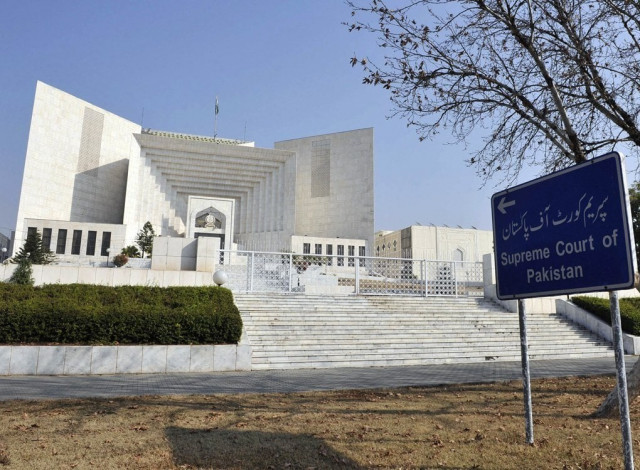CJ favours parliament settling NAB tweaks
Justice Mansoor observes PTI can move amendment bill in NA

The Supreme Court has expressed the hope that the differences over amendments made to the National Accountability Bureau (NAB) laws could be resolved if the Pakistan Tehreek-e-Insaf (PTI) were to head back to the National Assembly and hammer out an effective accountability law or table a bill for changes to it.
The top court broached the possibility of the PTI returning to the lower house of parliament after media reports suggested that the PTI had hinted at joining the NA, and how the party's return could bode well for the matter.
After coming into power last year April, the PDM government had passed the National Accountability (Second Amendment) Act 2022. The move drew vehement criticism from PTI, who termed the legislation an attempt to render NAB into a toothless organisation.
Read SC takes notice of delay in AGP appointment
PTI chief Imran Khan challenged the amendments to the NAB ordinance contending in the petition that the tweaks in the accountability laws will “virtually eliminate any white-collar crime committed by a public office holder.”
A three judge-bench comprising Chief Justice (CJ) Umar Ata Bandial, Justice Ahsan, and Justice Mansoor Ali Shah heard the petition on Tuesday.
At the outset of the hearing, the chief justice cited media reports regarding the return of the PTI to parliament and asked whether the government would want to sit with the PTI to address the major issues if the former ruling party joined parliament.
The chief justice asked the government’s counsel whether his client would be open to the possibility of the legislation being referred back to parliament while remarking that the top court has always wanted this matter to be resolved in parliament.
At this, the federal government’s counsel, Makhdom Ali Khan, maintained that he was not at liberty to comment on that without taking instructions from the government. However, he added that everything was clearly laid out in the parliamentary system under which the PTI could table a bill for tweaks in NAB laws after joining the house.
“There can be no democracy without politics. There is a model of a national government that came into existence after World War II. No law was ever revoked on the basis of assumption about the intention of members of parliament,” he emphasised.
The lawyer further recalled that no one moved the court when the PTI leaders secured relief thanks to the amendments in the NAB law. “NAB cases were framed against a former prime minister, ex-finance minister and chief executive of an institution, and they were later acquitted after many years in prison.”
NAB has been used for political engineering in the past, he claimed.
At this, Justice Ijazul Ahsan remarked that the legislation should be enacted with mutual consensus and not a mere majority in parliament. National interests should be given priority in matters of amendments in the law, he added.
Justice Ahsan said there was hope that the government and PTI would enact legislation with consensus.
He questioned whether the NAB amendments were an amnesty scheme.
Meanwhile, addressing PTI’s lawyer Khawaja Haris, Justice Mansoor Ali Shah said the PTI could move a bill for the NAB amendment in the house, wondering why was the party refraining from joining the National Assembly.
Justice Mansoor Ali Shah also inquired whether it would not be appropriate for the PTI to bring an amendment bill to the assembly and have a discussion on it.
He wondered if it would be appropriate for the court to expand its jurisdiction and adjudicate on the conduct of members of parliament. “Why the court should decide the case of a person who does not want to join the parliament,” he asked.
Read More NAB drops inquiry against former adviser, SC informed
He further observed that Imran Khan neither wanted to be part of parliament’s debate nor he was ready to accept its decisions. “The whole system was being frozen due to this factor,” he added and asked whether the returned references couldn’t be moved to any other forum.
Khwaja Haris explained that the PTI had left the house under a political decision.
At this, the federal government’s lawyer said that there were also other forums for these cases in the country.
He said that the court had declared in the GDCI case that the received money would be spent only on gas projects but the said funds disappeared from the exchequer. He said that the money returned to the NAB as a result of plea bargains was also not deposited to the national exchequer.
CJP Bandial said that the court intended to conclude the NAB amendment case early as it was eventually affecting the execution process of accountability law in the country.
“We need independent investigation officers and prosecutors as their incompetency is affecting the accountability system. Until now, 386 references had been returned after the amendments in the law," he noted.
Later, the court adjourned further hearing of the case till January 18 (today).



















COMMENTS
Comments are moderated and generally will be posted if they are on-topic and not abusive.
For more information, please see our Comments FAQ